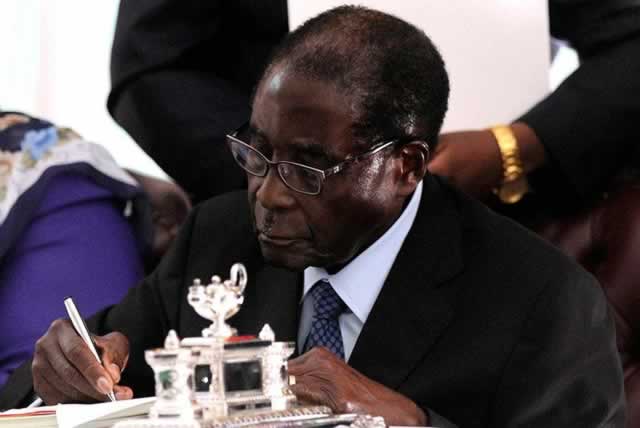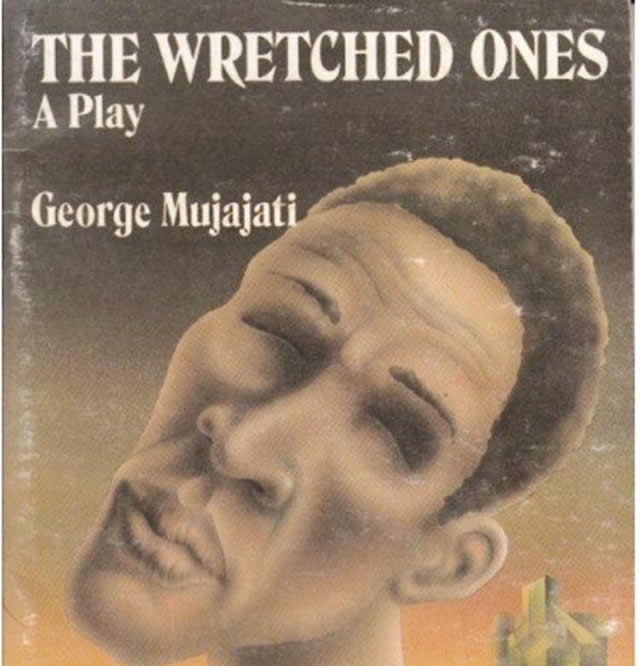President, Zanu-PF’s landslide highlights of 2013

Farirai Machivenyika
Curtains come down on 2013 and the major political highlights are the demise of the inclusive Government and the MDC formations, the crafting of the country’s supreme law and the decisive victory by Zanu-PF in the July 31 harmonised polls.
History was made this year as the country adopted a new, home-grown national Constitution to replace the one agreed on at the 1979 Lancaster House Conference to usher in the independence of Zimbabwe. The new Constitution is truly an historic document that was endorsed by all the parties in the now defunct inclusive Government; Zanu-PF, MDC-T and the MDC.
However, it is Zanu-PF’s emphatic victory in the elections that provides the most intriguing political highlight of 2013. The majority of the political drama and “madness” by some players in Zimbabwe’s body politic were concentrated on the last half of the year.
The MDC formations and their handlers — the British, Americans and the European Union — do not understand what became of the regime change project. The poll results, that marked the zenith of Zimbabwe’s politics this year, have surely seen the regime change agenda fast fading with sponsors developing fatigue due to the MDC formations’ poor show at polls.
The year wound down with Zanu-PF’s 14th Annual National People’s Conference that adopted the Zimbabwe Agenda for Sustainable Socio-Economic Transformation (Zim-Asset), an economic blueprint to drive national economic agenda for the next five years.
As Zanu-PF will be on the driving seat, surely Zimbabweans will soon start enjoying the fruits of their votes.
The country went to polls after futile attempts by the MDC formations to delay them using various tactics from the implementation of so-called reforms (media and security sector) and an embarrassing misreading of the constitutional provisions on when the elections could be held.
There was also an attempt to abuse Sadc and the African Union to force Zimbabwe to delay polls, which was unconstitutional, given that the country has elections every five years and Zimbabwe has never been found wanting in that area. The MDC formations failed to use the national constitution to usurp the powers of the President to set dates for national elections as Mr Morgan Tsvangirai insisted no dates would be set without his consent.
It had to take the involvement of the Constitutional Court to set the dates of the elections following an application by a concerned citizen, Mr Jealousy Mawarire, that delays in holding the polls infringed on his rights to elect leaders of his choice.
Sadc, the AU and the United Nations all endorsed the elections in which Zanu PF won 170 seats to MDC-T’s 40; while President Mugabe garnered 61,09 percent of the vote while Mr Tsvangirai polled just 33,94 percent.
President Mugabe clinched the more than 50 percent of the vote required by the national constitution for one to be declared President of the Republic.
The other presidential aspirants, who included MDC’s Professor Welshman Ncube, Zapu’s Dr Dumiso Dabengwa and Mr Kisinoti Mukwazhi, got 2,68 percent 0,74 percent and 0,29, respectively. Political analyst Mr Goodwine Mureriwa said the results of the elections were a clear indication of Zimbabweans’ desire to be left to chart their own destiny as a sovereign people.
“The overwhelming vote by Zimbabweans should be viewed in the context of a people exercising their sovereign right to decide the governance of their country. It was a clear statement to neo-colonial elements that Zimbabwe would not tolerate quisling politics that some parties wanted us as a country to follow. Zanu-PF’s overwhelming victory came after people realised that the MDC-T would not offer any solutions to the challenges facing the country, judging by their performance in the inclusive Government,” he said.
Mr Mureriwa contends that as the year closes, it is important that Zanu PF focuses on fulfilling its election promises and improve the livelihoods of ordinary people. “As we move into 2014 it is important that focus be on addressing the aspirations of ordinary people who have to bore the brunt of the illegal sanctions in the past 13 years.
“Zanu-PF got the sole mandate to govern the country and should ensure that it delivers on its promises, especially in ensuring that people benefit from their resources as espoused by the indigenisation policy,” he added.
Chair of the Department of Political Science at the University of Zimbabwe, Dr Charity Manyeruke, echoed similar sentiments saying Zanu-PF should focus on addressing the myriad challenges facing the nation.
“The sanctions that the country has been facing have brought a number of hardships on people’s lives and this is what should preoccupy the Government as we move forward.
“Zanu-PF’s victory is an overwhelming vote of confidence in the empowerment policies that were the foundation of the party’s manifesto for the elections and should be implemented to the letter,” she said.
Another analyst, Mr Gabriel Chaibva, said it was time Government fully implemented empowerment policies for the benefit of indigenous Zimbabweans.
“What people want to see now is the implementation of the indigenisation policies as captured in the Zanu-PF manifesto and the Zim-Asset economic blueprint adopted by Government.
“Zimbabweans spoke clearly on July 31 that they want to be masters of their destiny and this should be the guiding principle going forward,” he said.
Addressing delegates at the 14th Zanu-PF Annual People’s Conference, President Mugabe said Government would vigorously pursue policies enunciated in Zim-Asset, especially maximising benefits accruing to the nation through value addition and beneficiation of the country’s vast mineral resources.









Comments